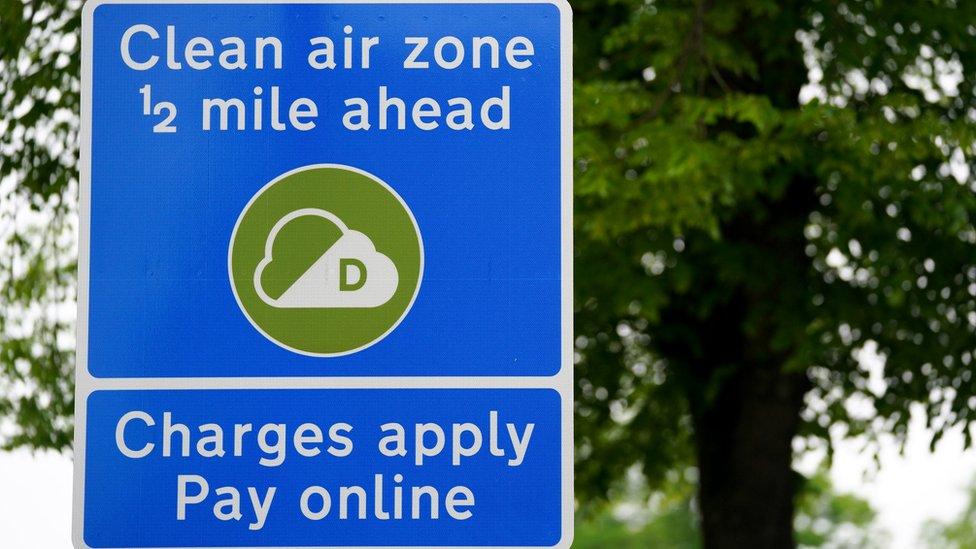Greater Manchester Clean Air Zone: Mayor scraps plans for charges
- Published
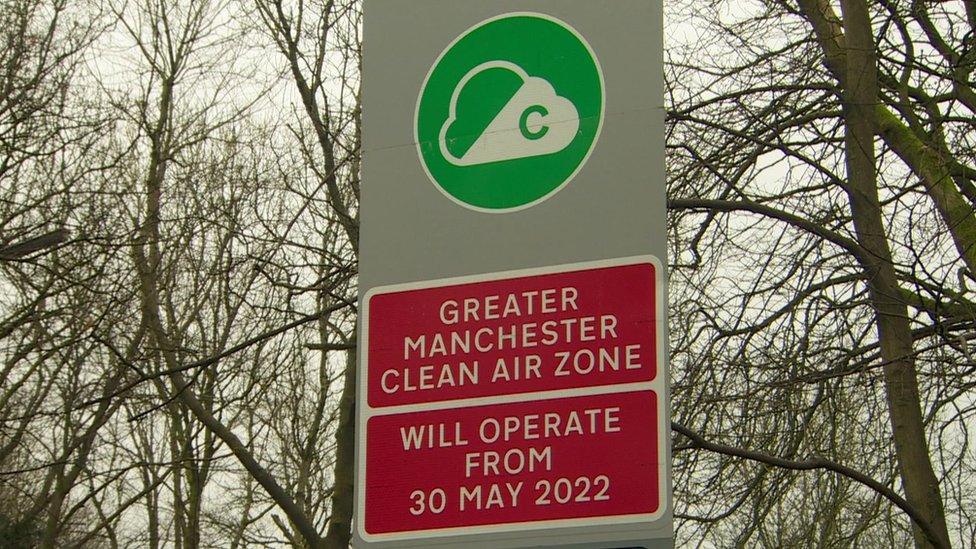
Road signs in Greater Manchester were covered after the original plans were postponed
Plans to charge motorists in Greater Manchester in a bid to clean up pollution will be dropped if the government agrees, Andy Burnham has said.
The region's mayor has announced new proposals for a zone free of charges, subject to government approval.
It will include incentives for older and less economical vehicles to be eligible for grants to replace them.
Mr Burnham said the authority was "going into a negotiation".
"The red line is we will not accept a charging Clean Air Zone in Greater Manchester," he said.
"And if that is what the government wants, it will have to impose it."
The government has ordered all areas to bring down air pollution by 2024, with different cities and regions taking different approaches.
Greater Manchester's original plan to create a fee-paying Clean Air Zone from May this year was "paused" in February after the government and the Greater Manchester Combined Authority agreed to delay the scheme until 2026.
The zones are designed to encourage people to drive less-polluting vehicles, including those powered by electric, and more modern petrol and diesels.
High-emission vehicles - but not private cars - could have been charged between £7.50 and £60 per day under the plans.
Grants of £120m have been made available to mitigate the costs, but pandemic problems caused a shortage of electric or hybrid vehicles for drivers to convert to before the scheme was set to begin in 2024.
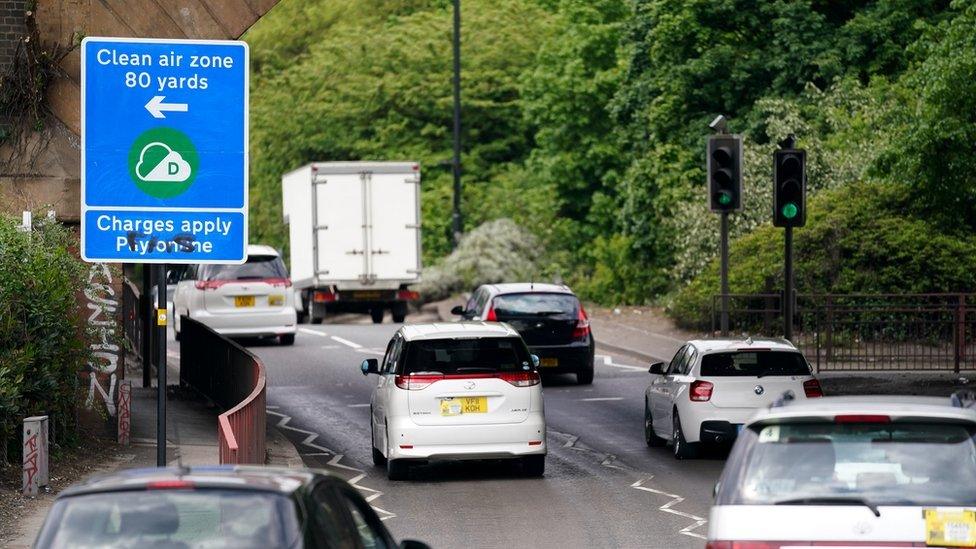
The clean air zone charges, similar to those in Birmingham and Bath, were paused in Greater Manchester
Mr Burnham and other politicians had faced growing criticism from some drivers and political rivals over the scheme.
But the mayor said the scheme was never about raising revenue and he would always look to protect jobs and businesses.
Mr Burnham said he and other council leaders "had listened" and the current plans were "substantially different".
By the increasing use of electric vehicles and by concentrating on converting to electric buses and other measures, he said clean air targets set for 2026 could be met without charges.
The zone will still be used, along with cameras, to monitor pollution and identify vehicles that could qualify for money to convert to electric.
'Strict framework'
Mr Burnham said the change in plans was not a climb-down and the combined authority had changed its plans because they would not work after the pandemic.
He added: "We were required to act within a very strict framework. A plan agreed pre-pandemic was not going to work."
Councillor Andrew Western, lead for clean air in the region, added: "We will be negotiating with, asking them to accept the principle of non-charging.
"If it is not accepted, that is a government decision not to accept that."

Why not follow BBC North West on Facebook, external, Twitter, external and Instagram, external? You can also send story ideas to northwest.newsonline@bbc.co.uk, external
Related topics
- Published28 February 2022

- Published25 February 2022

- Published20 February 2022
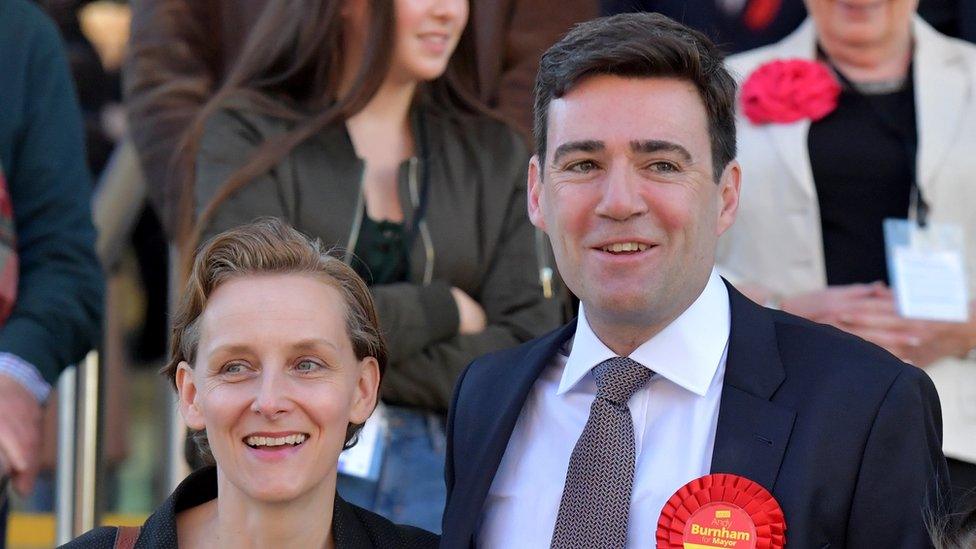
- Published4 February 2022

- Published3 February 2022

- Published2 February 2022
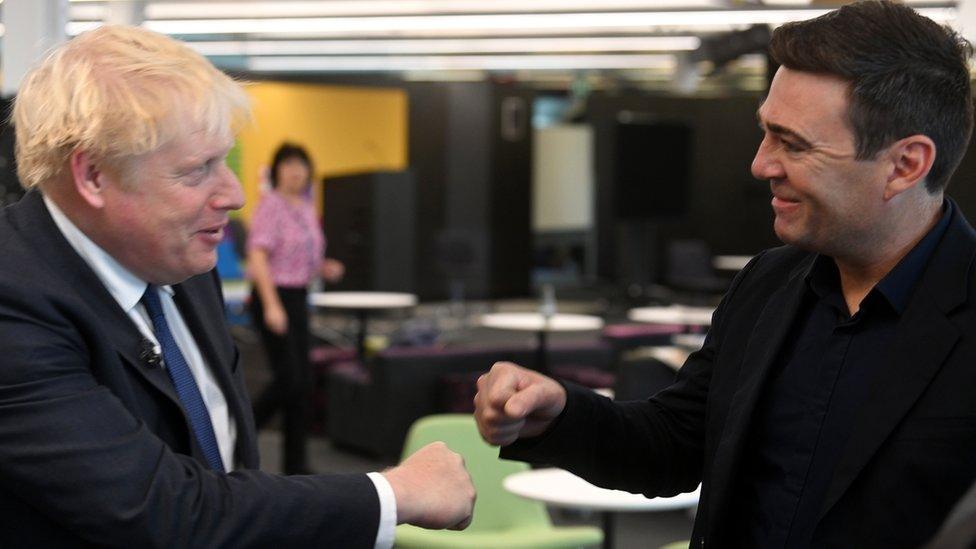
- Published28 January 2022
